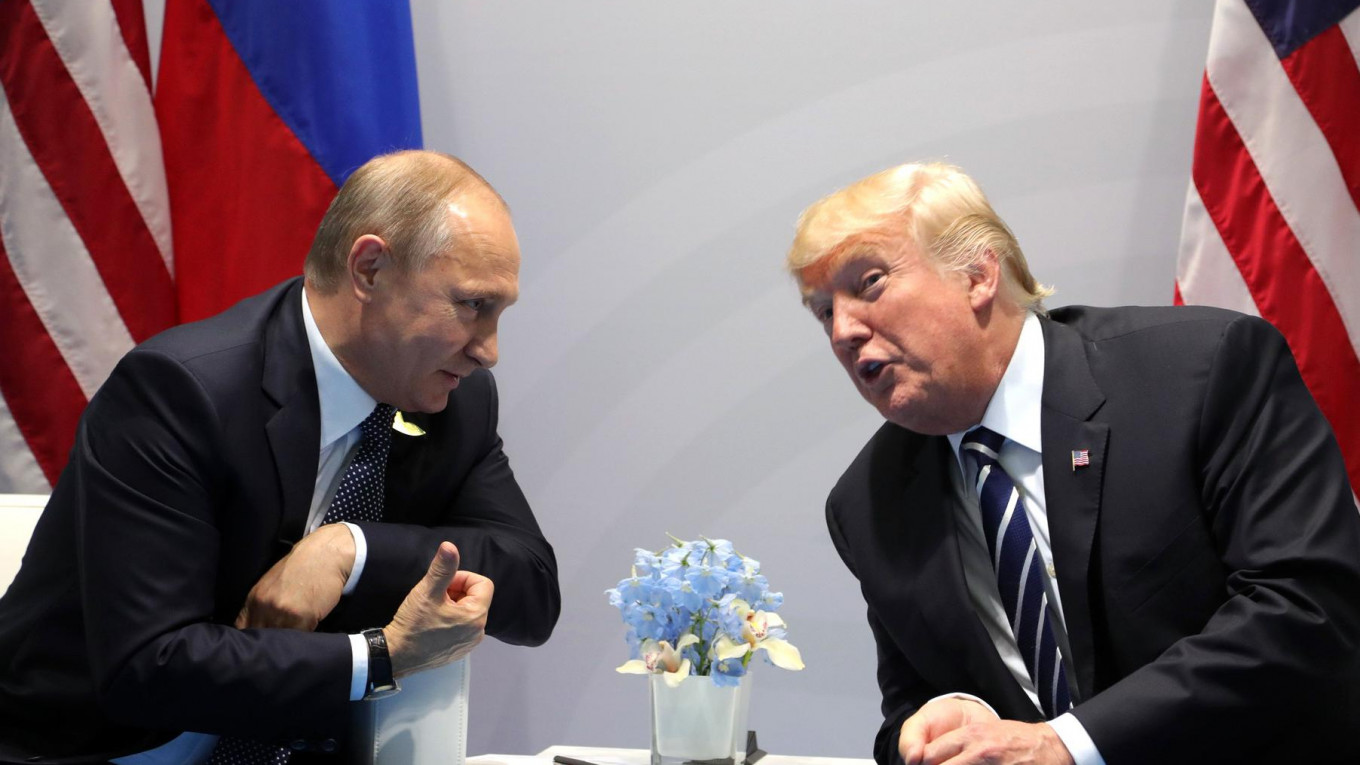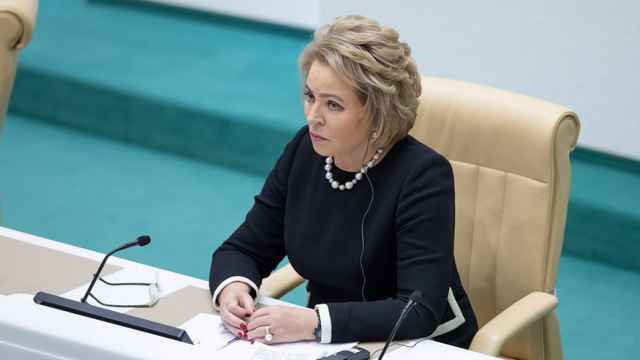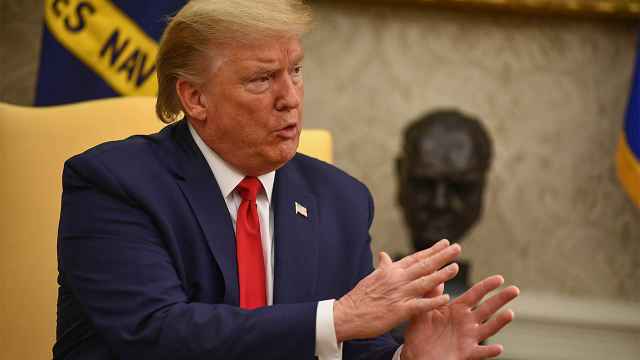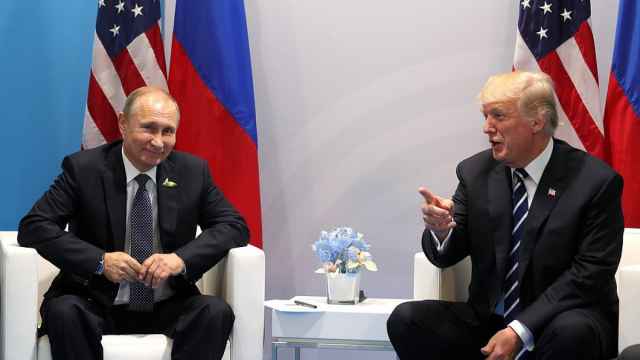Last week, it was revelations of an undisclosed meeting between senior Trump campaign officials, including the president’s son and son-in-law, and a Russian lawyer with clear ties to senior Russian officials.
This week, we’re hearing that Trump had a long and private discussion with Vladimir Putin at the G20 Summit which the White House had no intention of disclosing. Only the Russian government knows the contents of that meeting. No U.S. note-taker was present.
It’s as if Trump and his closest associates, from Mike Flynn to Jared Kushner to Trump Jr., have a bizarre talent for getting into compromising situations involving Russians, and an even more bizarre talent for covering them up with stories that keep changing.
But Trump Jr.’s meeting with Russian lawyer Natalya Veselnitskaya on June 9, 2016, and his email exchange with British promoter Rob Goldstone are extremely damaging to the Trump camp.
They provide evidence that Trump's camp attempted to cooperate with a foreign government to rustle up damaging information on their political rival, Hillary Clinton.
This attempt is summed up in the amazing quote in Goldstone’s email to Trump Jr.: “This is obviously very high level and sensitive information but is part of Russia and its government’s support for Mr. Trump.”
What’s more, Veselnitskaya’s source for damaging information on Clinton was apparently Russia’s top government prosecutor — probably Prosecutor General Yury Chaika. Veselnitskaya knows him well. It’s likely that Chaika then passed it to Trump’s one-time business partner in Moscow, Aras Agalarov.
Trump Jr.’s “I love it” reaction to the “dangle,” his decision to bring senior campaign officials, Jared Kushner and Paul Manafort, into the meeting and his failure to report the encounter all but seal the case for “collusion.”
But collusion is not a crime. It’s a lapse in judgment.
While the meeting doesn’t provide evidence of a conspiracy to violate U.S. law, it shreds Trump’s defensive narrative. He can no longer claim “there’s no evidence of collusion.” Trump and his immediate circle lose out. Bigly.
The Russian side of this story is much murkier. It’s not clear whether Aras Agalarov, a prominent Russian businessman, was acting alone or taking orders when he passed “Russian dirt on Hillary.”
The fact remains that in June 2016, the Agalarovs were Moscow’s most direct, reliable and discrete channel to Trump’s inner circle. Some kind of dossier on Clinton, it turns out, was handed over to Trump Jr. at the meeting and Agalarov’s minder from his U.S. company was there to take the reaction from Trump’s campaign executives.
For some, this may look like a brilliant Russian intelligence operation, where Veselnitskaya’s role was to create a compromising situation for Trump’s people. Then, it was her job to record that they were receptive to Russia’s offers to help them hurt Clinton.
But this would be taking it too far. There are no telltale signs of Russian intelligence involvement in the case. Rinat Akhmetshin, a Russian-American lobbyist who was also present at the meeting, may be a jack of all trades, but he is no intelligence officer.
The amateurish meeting suggests it was a rooky private play, perhaps planned with the intention of pleasing the Kremlin, were anything to come of it.
If the Kremlin were orchestrating this bizarre outreach, the most useful take-away would be realizing that Trump would welcome anyone’s effort to discredit Clinton.
It might be an unwitting collusion, but it isn’t going to put Trump in jeopardy of impeachment. Win.
Russia, however, should be experiencing buyer’s remorse.
The revelations make it more likely that the U.S. Congress will pass sweeping sanctions on Russia, which would bury Moscow’s hopes for a positive change in the relationship.
The Kremlin is becoming convinced that Trump couldn’t deliver on any agreements reached with Putin, straightjacketed by Congress and weakened by his “Russia thing.” This disincentives Moscow from brokering deals with Washington.
Moscow’s frustration over the seizure of Russian diplomatic properties in the United States borders on desperation. Trump’s rapid backtracking on the understanding to set up a working group on cyber threats, reached with Putin in Hamburg, has not gone down well in Moscow either.
Cooperation seems to be on track only in Syria. There, U.S. and Russian interests are rapidly converging into a mutual dependency against other regional players, cooperation on maintaining the cease-fire in the south and extending it to other areas as IS* is rolled back.
Still, one wonders: what could Trump and Putin have discussed for an hour over dessert at the G20 dinner?
*Islamic State is a terrorist organization banned in Russia.
The views and opinions expressed in opinion pieces do not necessarily reflect the position of The Moscow Times.
A Message from The Moscow Times:
Dear readers,
We are facing unprecedented challenges. Russia's Prosecutor General's Office has designated The Moscow Times as an "undesirable" organization, criminalizing our work and putting our staff at risk of prosecution. This follows our earlier unjust labeling as a "foreign agent."
These actions are direct attempts to silence independent journalism in Russia. The authorities claim our work "discredits the decisions of the Russian leadership." We see things differently: we strive to provide accurate, unbiased reporting on Russia.
We, the journalists of The Moscow Times, refuse to be silenced. But to continue our work, we need your help.
Your support, no matter how small, makes a world of difference. If you can, please support us monthly starting from just $2. It's quick to set up, and every contribution makes a significant impact.
By supporting The Moscow Times, you're defending open, independent journalism in the face of repression. Thank you for standing with us.
Remind me later.








